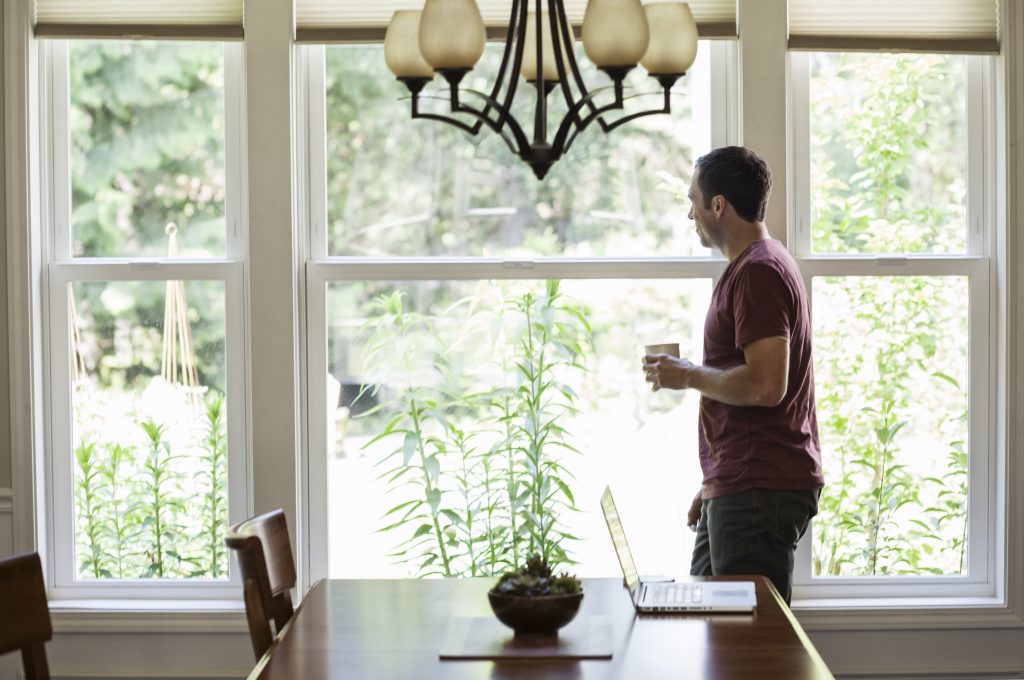
The pandemic has changed the world order. Technology has always marvelled human kind, and with the ongoing changes it has become the rescuer for most working class people. Working from home has become the new norm, opening up the concept of WFH from anywhere, which has now become well accepted all over, even with its pros and cons.
The WFH facility has given the millennials and techies a self motivation to perform according to their maximum potential. The adaptability to the new culture of WFH has been accepted with the right balance and is being seen as a sustainable means of operation. The companies are taking care that the efficiency of employees is not only maintained but also enhanced with more time at their disposal.
Today with the WFH culture, the professionals are glued to their laptops and unable to step out of the room. This creates fatigue in their work and develops stress-related issues in the long run. WFH requires having a dedicated space with the required facilities and equipment to be properly working. An equilibrium needs to be maintained to avoid any chaos between work and life balance. A self discipline approach becomes essential to give the best output without any stress or anxiety. Hence there is a need felt to have a stress free ambience and environment of WFH based residential units away from the concrete jungle.
Hybrid Approach

While the companies saved on several expenses like travel, entertainment and other related expenditures, the employees too have saved time and expense from commuting, benefitted from structural hours and got enough time to dedicate to their families and themselves. This flexibility of WFH guarantees its presence in the post-pandemic world and will remain need-based where work schedules can be adjusted accordingly.
Moving away from the corporate cubicle work culture, with the new-found lifestyle of working under natural light by the balcony windows, while also interacting with loved ones, young professionals are looking to make the best out of this situation by moving to a picturesque location. Now the professionals living in metros and cities have started thinking on the lines of buying vacation homes away from the city centre to have a better lifestyle and work-life balance. The high-income professionals are exploring holiday homes in vacation destinations like hill stations, coastal areas, resort-like areas, outskirts and peripheral areas. This gives a scenic working atmosphere and stress-free environment, improving the mental health and work efficiency.
Further, as a result of the economic uncertainty due to covid-19, the NRIs/HNIs(High Networth Individuals) are now investing in real estate rather than investing in other financial options like stock market or mutual funds as those returns are comparatively minimal and higher risk. This has boosted the demand for such residential vacation homes. With the market now rolling back into action and realising the concept of WFH, the need for such vacation or second homes in destinations like hill stations and other areas of interest has been bubbling to the top.
Changed Perspective for Buying of Homes
The pandemic has catapulted the criteria of buying houses after the WFH culture. Before 2020, the demand for houses close to the offices i.e. walk-to-work or short drive-to-work concept was the prime necessity especially in metropolitan cities. However, things have turned since the WFH culture became the norm. People have moved to accommodations away from the crowded areas and preferred the quieter, serene, larger and affordable houses in the peripheral areas.
With the increasing trend of WFH culture, the millennials prefer to own a spacious house outside the city centre for various benefits including the cost factor. The demand for spacious bigger houses at affordable prices in peripheral areas, where one can buy more house space for the same price is quickly gaining traction. Farm houses and get-away homes have become more lucrative to create a conducive atmosphere and offer a pleasant life-style at affordable cost for those on WFH mode. A major advantage being that the bonding between family and friends increased manifold due to closer proximity.

Changed Perspective for Buying of Homes
Incidentally, the flow of local tourists after lock down has increased in many hill stations in the country. The curb on foreign tourism has given rise to the exploration of forgotten wonders within the country. This sends a hope for recreational real estate market that was in a dormant state for couple of years. With people blessed with more disposable income after cuts in holidays, dining out, parties and commuting expenses after WFH culture, there is a trend growing to make investments in farm houses and real estate in destination sites. Well designed villas in hill stations create an opportunity for the buyers to own or lease it on a time-share model, where a group of villas are operated by hired hospitality industry experts as resorts or serviced apartments/villas for tourists.
Industry experts opine that the demand for WFH residential unit models providing luxurious, spacious, affordable villas/flats/farmhouses at soulful destinations away from the bustling city will be increasing day by day. In Tamil nadu, such kind of demand is already in place in hill stations and around the forest areas where one can enjoy the quiet nature and work away in peace, a stress-free environment to drive out the ill-effects due to sedentary work.
Further, the experts also view that the 2021-22 year will create a strong housing market. The demand for new homes will increase which otherwise was delayed due to Covid-19. The demand for selling the existing homes and buying bigger house to accommodate the parents are children with all WFH facilities will increase.
WFH is a platform that has increased the trust factor between the employer and employees. The give and take formula with distance becoming immaterial with the click of a zoom call will augment the buying opportunity for the buyers anywhere and will create a favourable wind for the real estate/construction industry. Economy will grow with more business/job opportunities.
A Win-Win situation for all stake holders.

